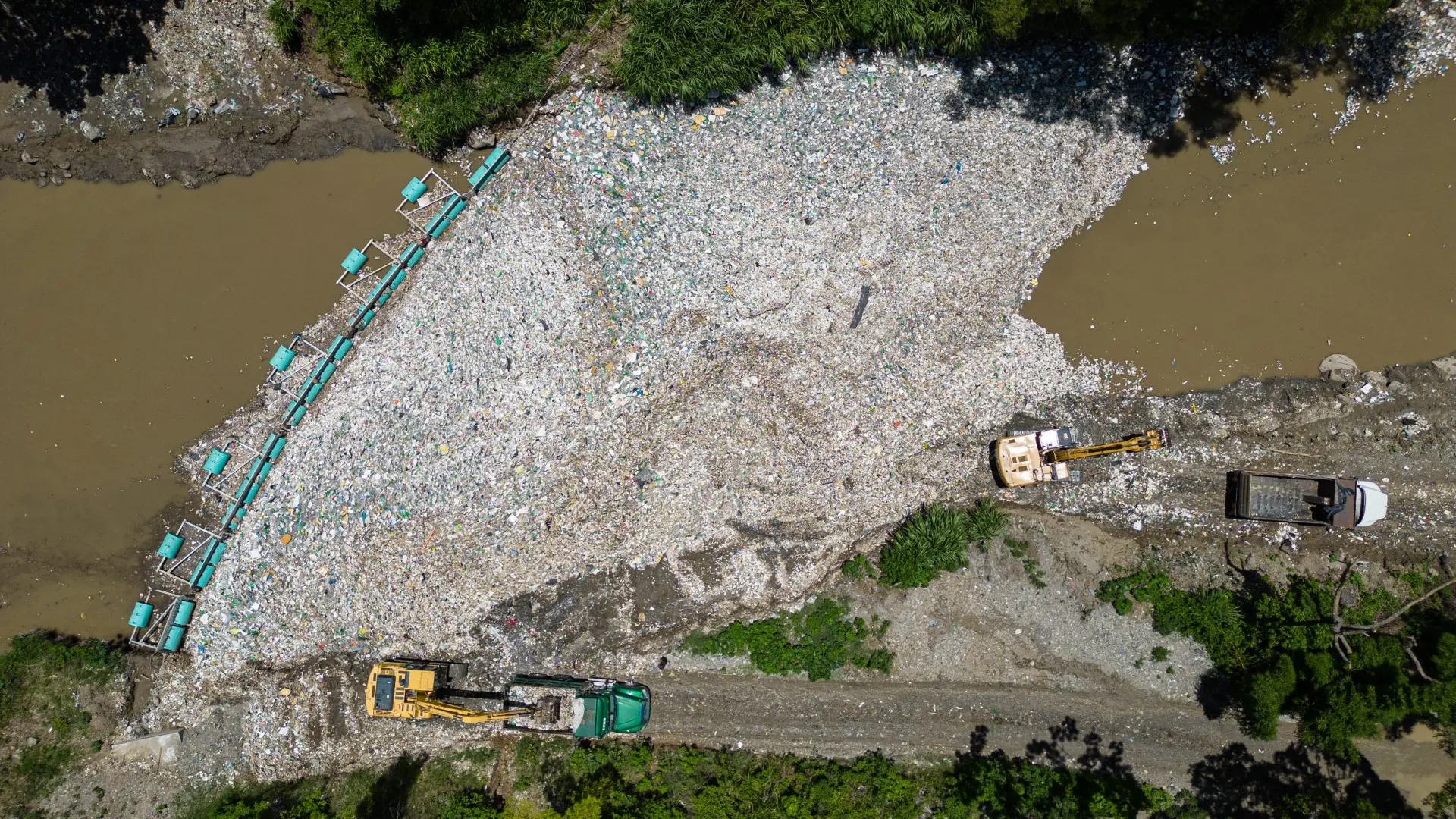The increasing attention to ocean plastics has led to a significant shift in both recycling initiatives and import practices worldwide. Ocean plastic, the waste that pollutes our oceans, is now seen as a valuable raw material for sustainable production. In this blog we explore the impact of ocean plastic on global trade and how the recycling process contributes to a more sustainable future.
What is ocean plastic?
Ocean plastic refers to the plastic waste that ends up in our oceans and causes serious environmental and health problems. The collection and recycling of this waste not only provides a solution to environmental pollution, but also creates new opportunities for the production of recycled goods. By transforming ocean plastic into useful materials, companies contribute to waste reduction and promote sustainability.

Source: The Ocean Cleanup. Interceptor Barricade in Guatemala (Las Vacas River, Interceptor 006)
Ocean plastic: Use in recycling and imports
The trend to use ocean plastic in production processes has created a new market within the import sector. Companies worldwide now import recycled materials derived from ocean plastic to manufacture various products ranging from clothing to packaging materials. This not only has positive environmental implications, but also stimulates innovation and sustainable entrepreneurship.
Challenges of importing recycled ocean plastic
- Quality Assurance: Ensuring the quality and safety of recycled materials is essential.
- Costs: In some cases, virgin (new) material is cheaper than recycled material. You do not use your supplier's volume prices for raw materials, so you also have less benefit there.
- Supplier: Your supplier must be willing to purchase and use the recycled material.
- Quality marks: It is important to prove that your product is actually made from recycled ocean plastic. You can do this through an agency such as The Ocean Cleanup.
- Logistical Considerations: Transporting recycled materials requires careful planning and management.
- Regulatory frameworks: Importers must be aware of and comply with international and local regulations regarding recycled materials.
Read more:

rPET backpacks: Sustainability meets functionality
In this article you will find everything you need to know about rPET material in backpacks.
Future prospects for ocean plastic
The focus on ocean plastic opens new doors for sustainable development and awareness. It encourages companies and consumers to think about their environmental impact and stimulates innovative solutions to one of the most pressing environmental problems of our time.
Conclusion
The integration of ocean plastic into recycling and import processes marks an important step towards a circular economy and sustainability. By choosing products made from recycled ocean plastic, companies and consumers can actively contribute to reducing environmental pollution and promoting a greener future.
Are you interested in importing products made from ocean plastic?
Contact Westwood Sourcing for more information on how you can participate in this eco-friendly solution to ocean plastic.









